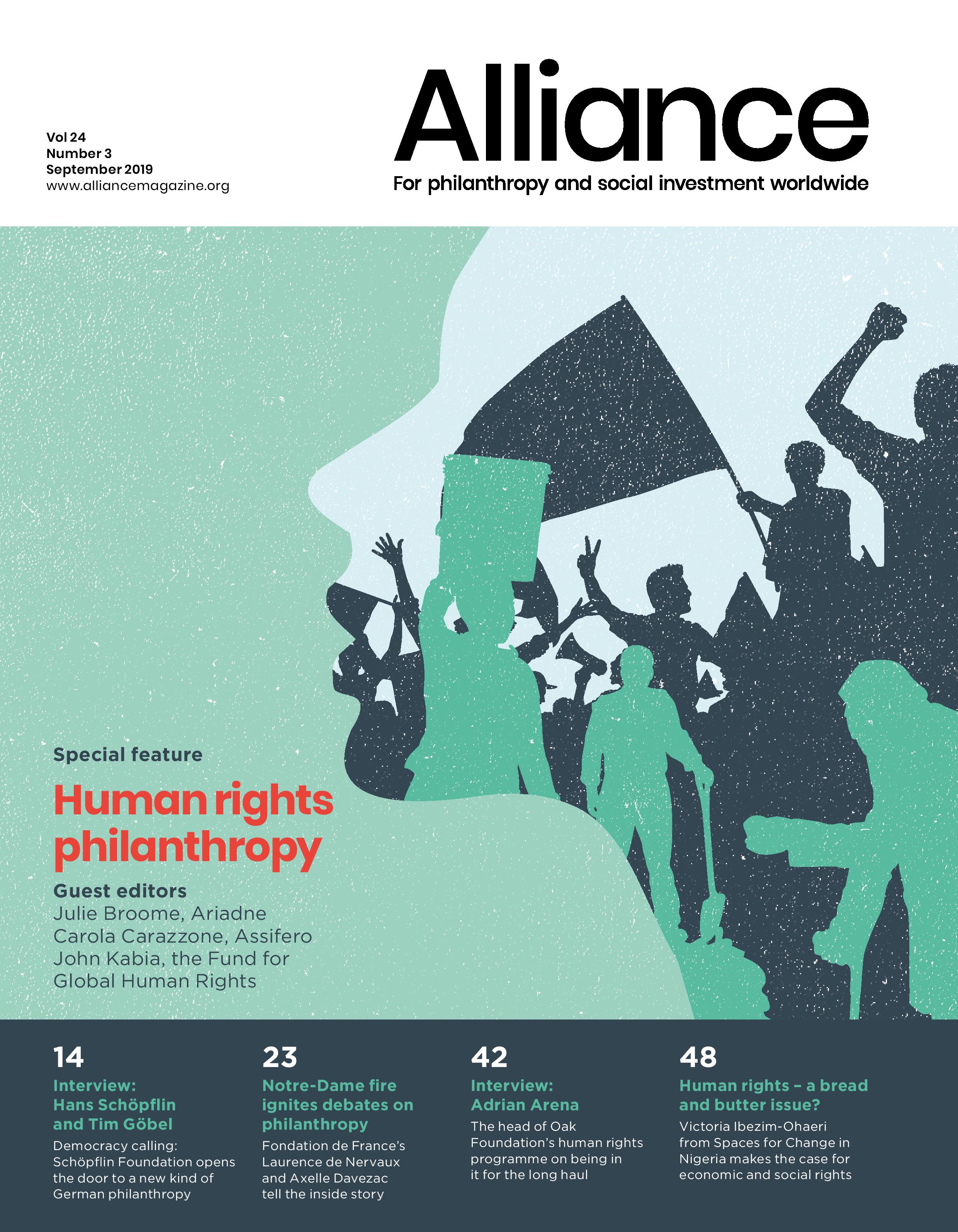A funders’ collaborative is mobilising grantmaker support for LGBTI rights advocates and communities facing hostility
Global Philanthropy Project (GPP) is a collaboration of 19 funders and philanthropic advisers working to expand global philanthropic support to advance the human rights of lesbian, gay, bisexual, transgender and intersex (LGBTI) people in the Global South and East. Established in 2009 as the first international cohort of LGBTI funders, GPP is internationally recognised as the primary thought-leader and go-to partner for donor coordination on global LGBTI work.
In recent years, as we expanded our programmatic work, it became clear that our members were responding to a shared issue across the world: grantees and partners were facing ongoing and increasing attacks from groups using religion and faith as weapons to limit the advance of LGBTI human rights. Our members also understood that these same anti-rights actors were often targeting reproductive rights and feminist movements with the same virulence. What role, we asked ourselves, can a global philanthropic network play in developing and deepening the field’s response?
In early 2018, GPP engaged a research team to produce a report with a dual purpose.
First, it was to document the main funding sources, strategies, discourses, actors and impacts of religious conservatisms[1] opposing both sexual orientation and gender identity (SOGI) rights and sexual and reproductive rights (SRR). The report included three regionally-focused case studies from Africa, eastern Europe, and Latin America.
Second, the report analysed and documented the main funding sources of LGBTI-affirming faith initiatives, exploring the challenges grantmakers face in funding such initiatives.
Funders should promote capacity building, provide flexible resources, make long-term commitments and avoid marginalising those with small budgets.
This research was presented at a convening in May last year organised by GPP, ‘Growing Solidarity: Funding at the Intersection of Faith, Religious Fundamentalism, Human Rights, and Social Justice’. It brought together 80 funders and civil society leaders across regions and funding areas, and provided a groundbreaking space for shared analysis and strategic work. In November 2018, GPP published a version of the research in both English and Spanish and held webinars with grantmakers to share the findings in both languages.
The research team also developed recommendations for grantmakers working to resist the harmful impacts of religious conservatisms and to increase support for faith communities which honour the human rights of LGBTI people. These recommendations drew on analysis of data from the Global Resources Report, interviews with key grantmakers in the field and a wide review of relevant literature. The following are high-level recommendations, which are each explored in more detail in the original research.
Overcoming internal barriers
Attention should be given to creating spaces of dialogue among grantmakers to build and/or strengthen alliances, in particular through focusing on dimensions other than religion; exploring intersectionalities and their tensions and building frameworks. This would involve sharing and reflecting on successful cases and developing dialogues on different theories of change.
It seeks to counteract the strategy currently being used by religious conservatives to create fear and resentment and activate moral panics around anti-rights agendas in Latin America, eastern Europe and other regions
Developing resources to promote local LGBTI movements
Attention should focus on the ‘micro’ level to promote the ‘macro’ effort through work with local organisations; supporting networks and capacity development with a global perspective, focusing on LGBTI organisations and avoiding marginalisation based on religion. In addition, funders should promote capacity building, provide flexible resources, make long-term commitments and avoid marginalising those with small budgets. Finally, funders should recognise and address religious and geographical diversity and support additional research.
In consideration of these recommendations, GPP has continued to convene large and small groups of grantmakers interested in addressing the overall issue of religious conservatisms, and the specific issues of the ‘anti-Gender Ideology’ strategy currently being used by religious conservatives to mobilise fear and resentment and activate moral panics around anti-rights agendas in Latin America, Eastern Europe and other regions. These convenings have included a pre-conference in advance of the Human Rights Funders Network meeting, on Building a Shared Response to Anti-Gender Movements, and a meeting of private philanthropic partners and communications experts on The Narrative Imperative: Imagining a Collective Response for Effective Communications . These spaces provide an opportunity to connect grantmakers and experts from civil society across a spectrum of human rights movements on the shared opposition we face, and deepening our collective awareness and analysis of emerging patterns, opportunities and strategies for resistance to the attacks on our communities.
We have already seen initial steps in donor mobilisation, connecting funders across often-divergent philanthropic fields: grantmaking to women, LGBTI communities, climate justice, media/communications, and beyond. While the outcomes of these funding interventions are not public, we can see early impacts of the field’s evolving understanding of the dynamics of these anti-rights agendas, and the opportunities for organised responses. We anticipate that the many communities and funding programme areas affected by this wide anti-rights agenda will yield additional opportunities for funder collaboration.
Donor convenings, webinars and other events serve as opportunities to share our research recommendations about increasing not only the amount but also the quality of resources being directed to these issues in the philanthropic field. In this case, increasing resource quality means providing funding that is long-term, flexible, and accessible to smaller organisations and those working locally and regionally while also ensuring connections and support to those organising at the global level.
Matthew Hart is director of the Global Philanthropy Project.
Email: mhart@globalphilanthropyproject.org
Twitter: @GPP_Updates
Footnotes
- ^ Recognising the complexity and variety of terms used to describe different related movements, our report uses ‘religious conservatisms’ as an umbrella term for the political use of religion to limit the advance of human rights.






Comments (0)